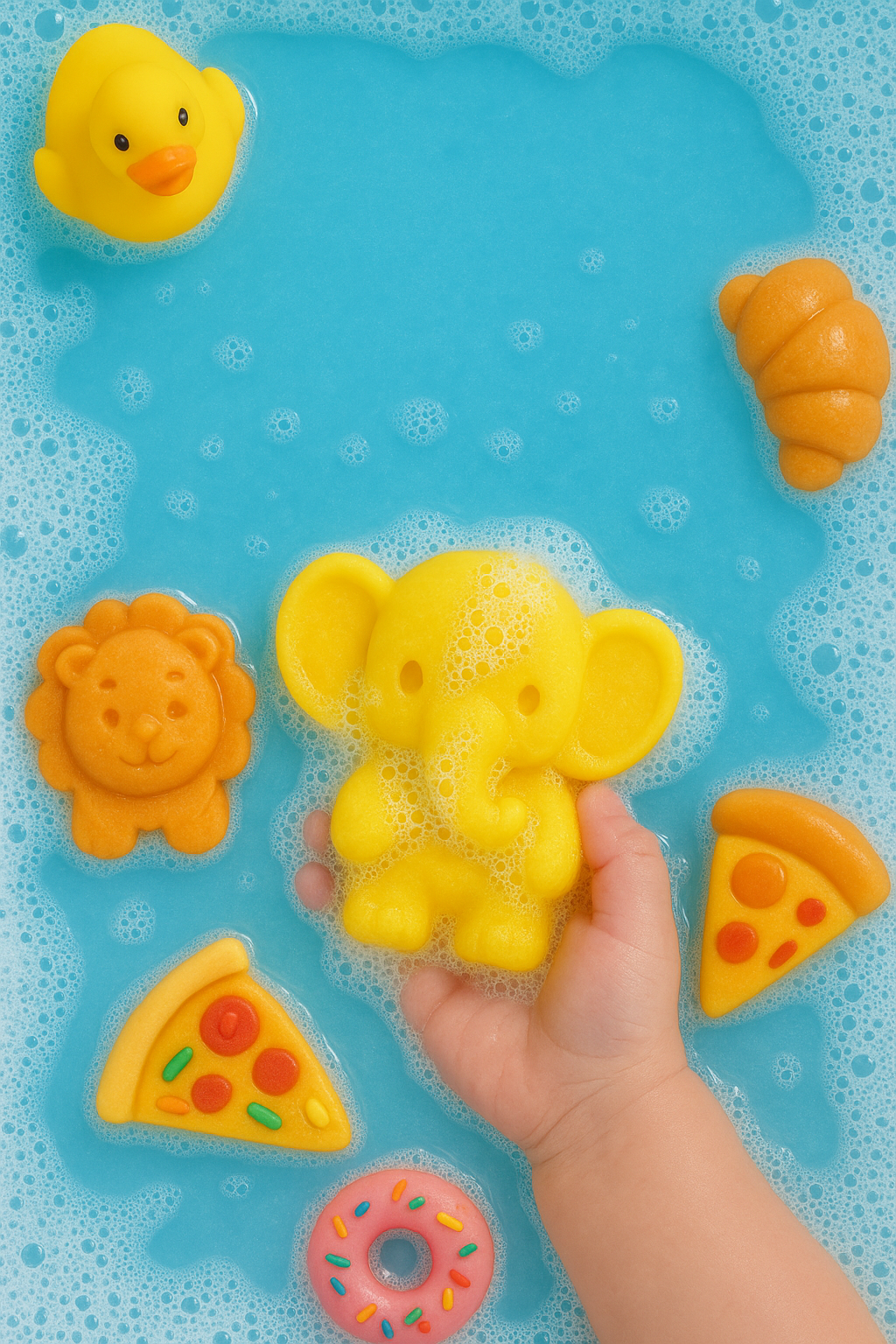
Bathing Your Baby with Love: A Gentle Guide to Protecting Precious Skin
Share
There’s a sacred kind of softness to a baby’s skin—a fleeting, velvety tenderness that seems to whisper, “Handle with care.” But beneath that softness lies vulnerability. A baby’s skin is 30% thinner than adult skin, losing moisture faster and absorbing chemicals more easily. As parents, we want bath time to be a sanctuary: warm giggles, tiny splashes, and the quiet joy of watching our little ones revel in the water. Yet too often, that peace is shattered by the fear of hidden toxins in products labeled “gentle” or “natural.”
If you’re struggling to find the best soap for babies that’s truly safe, you’re not alone. Let’s explore how to protect your baby’s skin with natural baby skincare—and why settling for “good enough” isn’t an option.
Why Baby Skin Needs Extra Protection
Newborn and infant skin is more prone to dryness, eczema, and rashes due to its delicate structure. Common culprits include:
-
Harsh detergents (like sulfates) that strip natural oils.
-
Artificial fragrances linked to allergies and respiratory issues.
-
Preservatives (parabens, phthalates) that disrupt hormones.
A 2022 study in Pediatric Dermatology found that 1 in 3 babies develops skin irritation from chemical-laden products. This isn’t just about avoiding rashes—it’s about safeguarding their long-term health.
7 Toxic Ingredients to Avoid in Baby Soap
-
Sulfates (SLS/SLES): Creates foam but causes dryness and irritation.
-
Parabens: Mimic estrogen, linked to developmental issues.
-
Synthetic Fragrances: Over 3,000 chemicals can hide behind this term.
-
Phthalates: Weakens skin barrier; banned in the EU but still common in the U.S.
-
Formaldehyde: A carcinogen found in some “preservative-free” claims.
-
Alcohol (Ethanol): Dries out sensitive skin.
-
Polyethylene Glycols (PEGs): Can be contaminated with heavy metals.
Why Goat Milk Soap is the Best Soap for Babies
For centuries, parents turned to goat milk for its gentle, nourishing properties. Modern science confirms why:
-
Rich in Fatty Acids: Locks in moisture to prevent dryness.
-
Natural Probiotics: Supports skin’s microbiome to fight irritation.
-
Vitamins A & E: Soothes eczema and diaper rash.
But not all goat milk soaps are equal. Many brands dilute formulas with water or add synthetic fragrances. For truly natural baby skincare, look for:
-
Cold-Processed Soaps: Retains milk’s nutrients.
-
Organic Ingredients: No pesticides or GMOs.
-
Zero Artificial Additives: Fragrance-free or scented with essential oils.
How to Make Bath Time Fun & Safe
-
Use Soaps with Fun Shapes: Stars, ducks, or clouds turn washing into playtime.
-
Keep Baths Short: 5-10 minutes to prevent moisture loss.
-
Pat Dry, Don’t Rub: Preserve natural oils.
-
Moisturize Immediately: Seal in hydration with organic coconut or jojoba oil.
The Gift Every New Parent Will Treasure
Struggling to find a thoughtful baby gift that’s practical and safe? Skip the stuffed animals and opt for:
-
Chemical-Free Soaps: Shows you care about their baby’s health.
-
Eco-Friendly Packaging: Recyclable or reusable containers.
-
Personalized Kits: Pair soap with a soft organic washcloth or wooden bath toys.
Why “Natural” Labels Can Be Misleading
A 2023 report by the Environmental Working Group (EWG) found that 87% of “natural” baby products contained at least one harmful ingredient. Don’t fall for greenwashing—scrutinize labels or choose brands that prioritize:
-
Full Ingredient Transparency
-
Third-Party Testing
-
Parent-Driven Formulations
Your Baby Deserves More Than “Good Enough”
At Flarah, we spent years battling our own babies’ eczema and allergies. After countless failed products, we created what we needed: a goat milk soap that’s:
✅ Unscented or Naturally Scented (with chamomile or lavender).
✅ Handcrafted in Small Batches for quality control.
✅ Shaped for Playfulness (because bath time should spark joy).
This isn’t about selling soap. It’s about empowering parents to make safer choices—without compromise.
FAQs About Natural Baby Skincare
Q: Can I use regular soap on my baby?
A: No—adult soaps are too harsh. Opt for pH-balanced, fragrance-free formulas.
Q: How often should I bathe my newborn?
A: 2-3 times weekly to avoid drying out skin.
Q: What if my baby has eczema?
A: Avoid fragrances and sulfates. Goat milk soap’s fatty acids can calm flare-ups.
Final Tip: Bookmark this guide and share it with fellow parents. Together, we can demand cleaner, safer products for our little ones.
Ready to Transform Bath Time?
Explore our gentle goat milk soaps—loved by dermatologists and parents alike. Because your baby’s skin deserves nature’s best, not a chemistry experiment.
